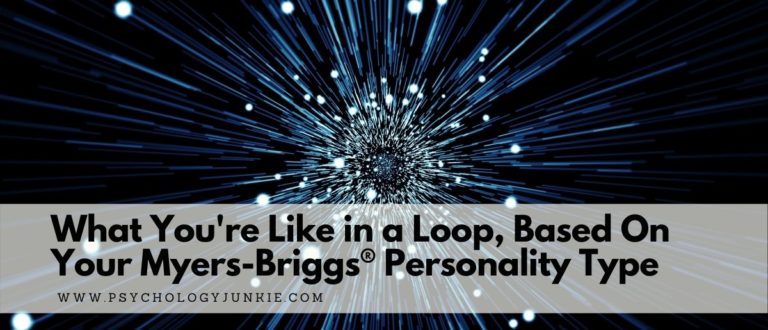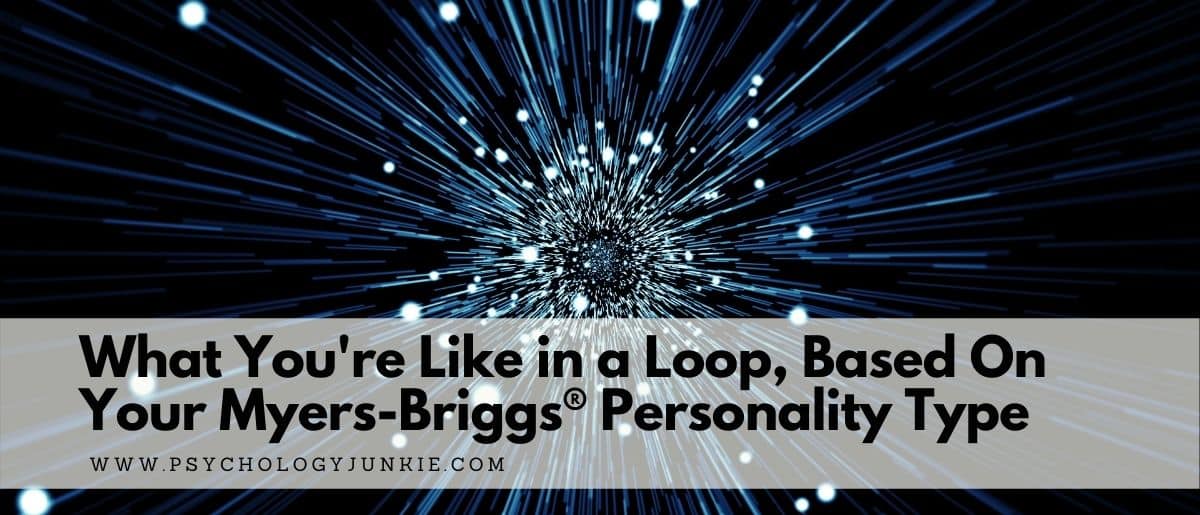6 Major Misconceptions About Feeling Types
In the personality community there are a lot of misconceptions about each type and especially each preference (thinking, feeling, sensing, intuition, etc,.) Perhaps you’ve heard that sensors are “boring” (a misconception we’ll tackle next week). Perhaps you’ve heard that thinking types are “cold” (that depends). There are misunderstandings about each preference in the Myers-Briggs theory, and I’m hoping to set the record straight on a few of them. Today I want to talk about what having a feeling preference really means, and squash (hopefully) some of the incorrect assumptions that have been made about the preference.
Not sure what your personality type is? Take the most accurate free online assessment here.

6 Misconceptions About Feeling Types

Lie #1 – Feelers Are More Emotional Than Thinkers
Feeling and emotion are two different things. According to personality theory, a feeling preference means that you make your decisions based on value-laden criteria. Instead of looking at impersonal pros and cons and facts, the feeling type looks at what they feel is morally right, what aligns with their values, and how that decision will affect people.
“A preference for Feeling does not have anything to do with emotions. Feeling types are neither more nor less inclined to be emotional than Thinking types.”
– Mark Hunziker and Leona Haas, Building Blocks of Personality Type
“But wait!” you might be saying, “I know feeling types are more emotional than thinking types! My Aunt Sarah always cries when…”. Okay, before we go into all the arguments about emotion and feeling let’s take a look at the literal definition of emotion:
Emotion: A conscious mental reaction (such as anger or fear) subjectively experienced as strong feeling usually directed toward a specific object and typically accompanied by physiological and behavioral changes in the body. (Merriam-Webster Dictionary)
Everyone experiences emotions, and many times people react irrationally to intense emotions. If you think that feeling types are the only ones who get emotional than you’ve never seen an angry ETJ (no offense, ETJs!). I’ve seen so many people mistype thinking types as feelers because they thought of them as “emotional”. The strongest thinking type can become extremely fiery and emotional and enraged, and so can the strongest feeling type. Some feeling types are more private about their emotions (FPs, for example) while other feeling types are more open about their emotions (EFJs tend to be). Some thinking types are more emotionally expressive than others, but by nature all humans have emotions and are emotional individuals regardless of whether they value thinking or feeling.
Feeling types, particularly introverted feeling types, do tend to listen to their emotions and consider their value more than thinking types do. They will ask themselves why they are feeling something so deeply and will try to identify it and sort it out. Feeling types can also have an advantage when it comes to picking up on emotional cues. Because people are often a deciding factor in their decisions, feeling types tend to be more attentive to human behavior and emotions sooner than other types are. Of course, this isn’t always the case, but it is very common.
Lie #2 – Feelers Are Less Intelligent Than Thinkers
A thinking or feeling preference has nothing to do with how intelligent you are, but it does have everything to do with how you make decisions.
There’s a certain order that each of us take when we make decisions. The feeling type will consider their values and the impact of their decision on people. Then they will consider the impersonal facts, logic, and pros and cons. The thinking type will consider impersonal analysis, logic, and pros and cons, followed by values, meaning, and impact on others.
Only unhealthy personality types focus on feeling or thinking without considering the other preference. A thinking type who only considers logic and impersonal analysis would be unable to function in life. He’d be unable to make any decisions for the well-being of anyone, including himself. There would be no personal meaning, no relationship value to any of his choices. He would seem “inhuman”. The feeling type who never considered logical analysis or impersonal pros and cons would be carried around in a whirlwind of confusion and haphazard rules that had no basis in reality. They would not be able to function at all in society. Again, they would seem “inhuman”. Feeling and thinking are both essential processes. There’s an innate logic built into both preferences.
Feeling types focus on the impact of their choices. They consider the individuals involved and their circumstances and relationships. They are guided by systems of values (right, wrong, good, bad, beneficial, harmful). A feeling type can be the greatest math whiz or the most insightful author, but at the end of the day when they make their decisions they prefer to look to their values instead of impersonal analysis to decide. Tact and integrity mean more to the healthy feeler than being “right”.
Lie #3 – Feelers Are Nicer Than Thinkers
Okay, this is one of the most ingrained lies out there. Both thinking types and feeling types can be wonderful and kind people. Healthy feeling types tend to naturally be compassionate, warm and empathetic. They show their concern for others by making decisions that will positively impact them. However, healthy thinking types are also compassionate, helpful and kind. They show their concern for others by being honest and giving logical, sound advice.
A kind thinking type may not come across as “warm” as a kind feeling type. They may “say it like it is” and cut past sugarcoating to tell the truth. They may give advice that feels harsh or tactless. However, usually when the thinking type does this they do it because they value the relationship. Thinking types hate being lied to, they hate when people “sugarcoat” things for them, they hate when people don’t say it like it is. They assume that other people feel the same way and as a result try to be direct and honest with the people they care about. Now obviously there’s a difference between telling the truth and being a jerk. Saying, “That skirt doesn’t look good on you. Let’s try this one” is a lot nicer than saying “Wow, you look horrendous in that skirt, it’s like putting a tutu on a giant pear”. Being honest and being mean are two different things.
Some thinking types can be exceptionally warm and nurturing people as well. The thinking or feeling preference shows us how we decide and what we look at first: values or impersonal analysis.
Lie #4 – Feelers are Never “The Bad Guys”
A couple of years ago I spent a long time trying to find villains from every personality type, and I can guarantee there are a plethora of feeling villains out there. From R’As Al Ghul in Batman (INFJ) to Norman Bates (ISFJ) in Psycho, you’ll find feeling “bad guys” everywhere. Again, it comes down to decisions…
The feeling villain will make decisions based on values and meaning. There will be a largely personal tone to his decisions. He wants to prove a point, find some personal meaning or purpose, or follow a misguided ideal for humanity where “the end justifies the means”. The feeling villain’s motives might be far more insidious because they are tied to a corrupt value system.
The first extraverted feeling type I ever met was a girl who worked with me in the same office. At first I thought she was really nice; she was funny, outgoing, and talkative. But soon I discovered she was two-faced, dishonest, and spread false rumors about nearly everyone to make herself look and feel better.
The first introverted feeler I ever met was a man who was completely immersed in his own value system – a value system that had him at the center and no room for anyone else. He was temperamental and physically abusive, but he’d corrupted his value system to such a degree that he was always the righteous victim and everyone else was “the bad guy”.
So yes, feeling types can be just as evil, unkind, and ruthless as thinking types. It all comes down to how healthy or unhealthy they are and what kind of morals and values they’ve adopted (or created) as their own.
Lie #5 – Introverted Feelers are Selfish
Fi-users (FPs) get a lot of flak for being “selfish”. A lot of this has to do with descriptions of Fi that don’t go into a lot of detail about the function itself. Fi is technically “subjective feeling”. The Fi-user looks inside themselves to find values and ideals to embrace. They spend their entire lives refining this set of core values and ideals and they try to keep those values as untainted by culture and society and “rules” as possible. The FP considers independently what they feel is right and wrong and they strive to adhere to those beliefs. They are especially concerned with being authentic and honest. Nothing bothers them more than phoniness or deceit. Fi-users tend to feel things very deeply, but they aren’t especially open about their feelings and may express them in an indirect way; through song, writing, or some form of creative expression. Introverted feeling types also tend to root for “the underdog”. They have a natural compassion for marginalized or ignored people groups or animals. Healthy introverted feelers have a great amount of integrity, compassion, and resolve.
While introverted feeling may be subjective and more focused on one’s own values than the values of others, it is definitely far from selfish. Selfish Fi-users do exist, but they are the unhealthy ones, not the norm.
Lie #6 – Extraverted Feelers Are Phony and Have No Independent Values
Fe-users (FJs) also get a lot of judgment in the personality community. I’ve heard hundreds of people make comments about Fe-users being shallow, devoid of values, and fake. FJs have their own personal values and morals, but they tend to question them and test them against outside sources they trust to see if they make sense. They might read books or seek wisdom from people they respect to confirm or further question their values. They want to be “objective” about what they believe and they want to confirm that what they believe “makes sense” because they don’t trust their inner subjective feeling to a strong degree.
Where the FP spends their entire life studying and molding their inner value system; FJs spend their entire lives studying interactions with people and figuring out what does or doesn’t maintain harmony. . They use the lessons they’ve learned to promote harmony in their environment and meet other people’s needs. They may sacrifice their own needs and subjective values to create harmony in their environment. The FJ asks “what would you like to do?” and uses your answer to determine what they will prioritize. Generally speaking, FJs tend to get called “fake” by people who don’t have Fe in their function stack. When they see an FJ being a “social chameleon” they find it untrustworthy and question which side is the real side. The answer is usually that ALL sides are the real side. FJs know how to choose which side of themselves to show to others so that those specific people feel comfortable. They may suppress other sides of their personality if they feel that it will cause friction or make people feel uncomfortable. To the Fe-users, having good “bedside manner” is essential in basically every situation in life. You will usually see their core values in what they base their life around. Are they an advocate for the homeless? rape victims? refugees? Look at what they’re basing their life on and you’ll usually see what values they have.
There are phony, shallow Fe-users, but as always, these are the unhealthy versions and not the norm.
What Are Your Thoughts?
What misconceptions have you heard about your type? Let me know in the comments!
This page contains affiliate links. I only recommend products I truly believe in.
Other Articles You Might Enjoy:
How You Process Emotions Based on Your Myers-Briggs® Personality Type
How You Use Introverted Feeling Based On Its Location in Your Function Stack
How You Use Extraverted Feeling Based On Its Location in Your Function Stack

Subscribe to Our Newsletter

Want to discover more about personality type? Get the inside scoop with Susan Storm on all things typological, along with special subscriber freebies, and discounts on new eBooks and courses! Join our newsletter today!














Really great post here, Susan!
Wow! This is awesome, and very insightful! Thank you so much for posting this. I love reading your articles.
I’m so glad you enjoyed it! Thank you for the kind words and encouragement 🙂
I’ve heard Hitler was typed as INFJ, but I don’t believe he was that type. Maybe you could do your next article on the personality types of dictators and serial killers, maybe another article for the types of former presidents.